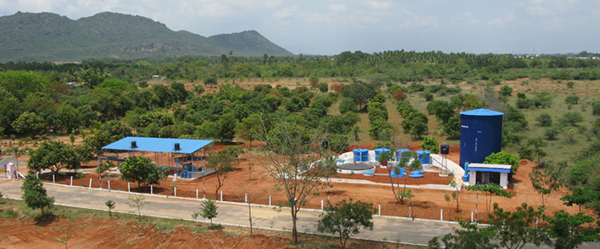
We support organic alternatives
The aim of the Soil fertility Project is to provide organic products for rural farmers, which in turn increases the quality and fertility of their soils, using primarily agricultural and market waste.
There are two primary products produced by sustainable technologies that we use and these are biochar, Effective Micro Organisms (EM) and liquid fertiliser.
Biochar is a form of charcoal made from ‘dry’ agricultural waste such as straw, rice husks and unused woody material. Pyrolysis the process of making charcoal, is as much an art as a science and after much research we chose to use a technology designed by Black is Green (BiG) in Australia to make SCAD biochar. Pyrolysis is the process of heating organic material to very high temperatures in the absence of oxygen to get high quality charcoal.
Fertiliser, in this case, is made from ‘wet’ waste such as vegetable trimmings from the SCAD kitchens and green waste from local markets. Biotech (remove link) from Kerala has designed and manufactured to our specifications, the SCAD anaerobic digester.
‘Charfer’ is the combination of our biochar and liquid fertiliser products and can be used to improve soil quality and crop yields, without further destroying the now fragile ecosystems. The digester also produces large quantities of methane gas that is used for cooking and generating electricity for street lighting and ground water pumping.
Under the guidance of David Friese-Greene, Director of SFP, Dr Ravikumar, inventor of the Anila cooking stove and the help of University departments worldwide, SCAD is carrying out an ambitious research program, including field trials, and women’s groups kitchen garden trials to test the effectiveness of ‘charfer’.
We wholeheartedly thank James Bruges and Marion of RH Southern Trust-UK, Jeff Allen and Sue Allen from Vision Works – UK and Carlos from Alter Entorn – Spain for their support and encouragement.


